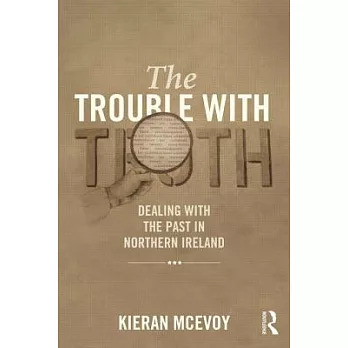Unlike many other peace accords, the Good Friday Agreement signed in 1998 did not include a formal mechanism for 'dealing with the past' in Northern Ireland. Despite that omission, the politics of truth recovery and its assumed links to reconciliation have been a constant theme in the transition from conflict in the jurisdiction.
This book critically explores that relationship. It draws extensively from the international context and the author's experience over several years of grassroots work exploring 'dealing with the past' style initiatives. It charts the myriad of styles of truth recovery which have been part of the Northern Ireland transition including the Bloody Sunday Tribunal, public inquiries into controversial deaths, the work of the Office of the Police Ombudsman, litigation strategies and various 'bottom up' community based efforts at truth recovery. It also reflects upon the recommendations of the British government appointed Consultative Group on the Past and the contested debate as to how and whether its recommendations should be implemented.
The book argues that the Northern Ireland experience speaks to important issues more generally in transitional justice concerning the sequencing, ownership and forms of truth recovery deployed, the agentic capacity of grass-roots activism, the politicization of victimhood, the construction and deployment of transitional knowledge, the importance of political will and leadership in transitions and the problematic relationship between truth recovery and reconciliation.



 天天爆殺
天天爆殺  今日66折
今日66折 

























 博客來
博客來 博客來
博客來 博客來
博客來 博客來
博客來 博客來
博客來